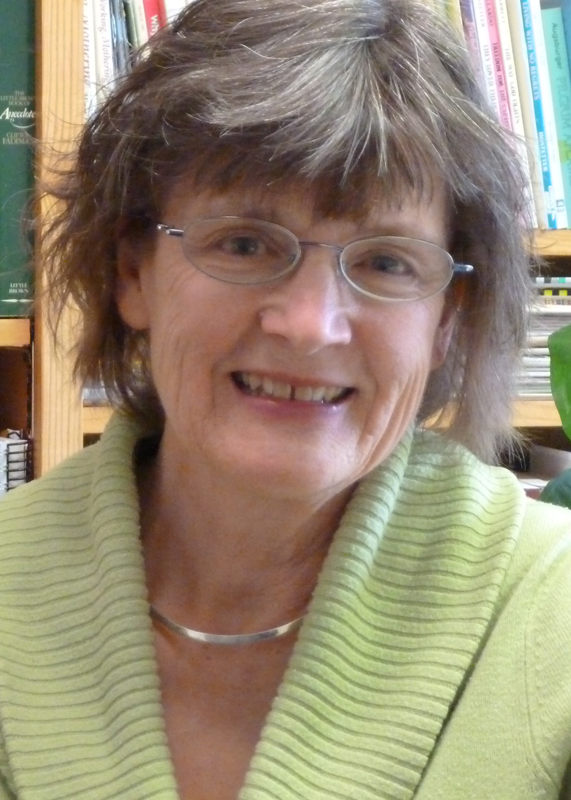Relating to Single Parents: Part 2
Second in a two-part series on single parenting.
In the space of several months, I heard several women talk about how difficult it is to be a single parent—especially in church. Without meaning to, good people say things that cut.
There are worse things than being a single mom, and that is being a non-caring, nonfunctional, uninvolved mother.
One of the persons who said something cutting was me. I had given a talk for a church group about my book Whatever Happened to Dinner? I mentioned the statistics from Columbia University’s research on substance abuse that I quote in the book—about how trying to eat together as a family helps kids (sometimes, not always) avoid drugs, tobacco, and other problems. Mistakenly, I inferred that the statistics were only logical; that those households that have a dad and a mom and consequently more income and more stability (weren’t getting evicted, etc.) help to create a more stable home atmosphere where kids—more often—steer clear of really bad choices. I had veered off my prepared speech and ad-libbed a bit, which didn’t help.
A single mom took me on after the talk. She felt that I was saying kids in single-parent homes are at greater risk and that she could never do a good enough job. I squirmed, a lot. That wasn’t what I meant to say. I have multiple wonderful relatives in that very situation. I was unhappy with myself and the impression I left, not for my sake, but for hers and anyone else there who felt unfairly judged.
While stability is great to have when raising children, it does not come from marriage alone. There are worse things than being a single mom, and that is being a non-caring, nonfunctional, uninvolved mother. Most single moms I know are like mama bears protecting their young with love, dedication, and ferocity. The Columbia University research that I quote in my book doesn’t speak at all to how many parents a child has, but to the frequency of families eating together and how that tends to help children growing up with a parent who is checking in on how they are doing.
But there are many ways single parents can feel left out and alone. Heidi Schlumpf, writing in an article titled “Stand Alone Moms” (www.USCatholic.org), gives the example of father-daughter dances at school—a lovely tradition if a dad is still in the daughter’s life. But how does it feel if there is no father or father figure? Or how about the Sunday school end-of-year picnic where fathers play baseball against sons, or other similar events? That can leave a child, again, feeling different, alone, and overlooked. Another single mother asked how even if she would manage to go to an evening event and hire a babysitter, who takes the babysitter home (assuming the sitter is a teen who doesn’t yet drive)?
Some single-parent dilemmas can turn into an advantage, such as decision making. When there’s no partner sharing in everyday decisions regarding activities and on-the-spot discipline or guidance, it can feel lonely—or freeing. You don’t have to argue about a decision or what direction to go with the child. But some parents appreciate bouncing ideas and dilemmas off of a friend, family member, or counselor.
In an iMom.com post titled “5 Toughest Single Mom Struggles,” the author mentions how plain old everyday fatigue counts for one of the toughest struggles. The writer encourages single parents to take time—away from children if need be—to care for themselves: “It’s not selfish to maintain the engine that keeps your home running,” the article points out. In last week’s column, my sister gave an example of jumping in the tub as soon as she got home from work; her older children knew that time was sacrosanct and the little ones shouldn’t bother Mom.
In a forthcoming revised edition of a small devotional book, Meditations for Single Mothers, (Herald Press, August 2015), Susanne Coalson Donoghue writes as a single mother in the ’70s—no father in the picture after an affair with a married man. She decided to keep her baby, and after a period of adjustment eventually had support from her immediate family as she raised her young daughter. In the preface to her book, Susanne says, “When I learned I was pregnant, I panicked. I felt unequipped to be a parent, let alone a single parent. How would I provide all that my daughter needed? How would we survive?”
In the midst of her despair, “God spoke to me,” she writes, “planting thoughts in my mind [that] ‘it will be all right.’” Susanne began to face up to her situation, became involved in a church, and found “much healing from the self-hatred, loneliness and rejection that had propelled me into disastrous relationships.” She shares her ups and downs, including the trials of her daughter’s own teenage and young adult years. If you know any young mothers in this situation, they may appreciate this small book
With an overall decline of marriage in our society, health statistics now say about 40 percent of all births are to unmarried women (Centers for Disease Control, 2014). None of us should judge anyone for their situation, and it is important not to blame or fault the child for what happened. Susanne worked hard to convey to her daughter that she was and is a “precious gift from God to the world.” What a wonderful truth to express!
I thank my sister, Susanne, and the other women who have shared their experiences for the benefit of others. These are fine examples of the maturity, guts, and strength these women have gained over the years—and given back. They are a credit to their faith communities and their families.
For a free booklet directed to children, write for the title When Mom and Dad Divorce. Email MelodieD@MennoMedia.org or write to Another Way, 1251 Virginia Ave., Harrisonburg, VA 22802.





